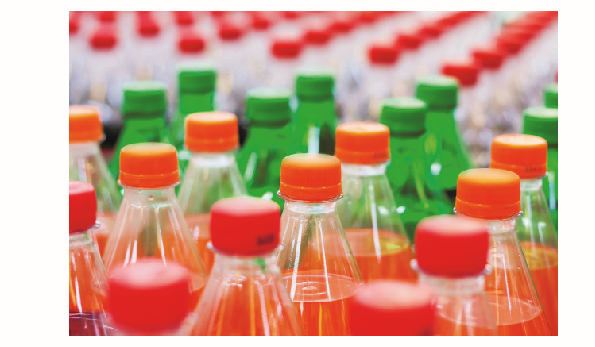
By Edu Abade
If Nigerians must enjoy undiluted natural food, healthy diets and achieve food justice now and in the future, there should be deliberate attempts by the government to ensure effective taxation on Sugar-Sweetened Beverages (SSBs), implement the World Health Organization’s (WHO) salt reduction target and eliminate trans-fats from the country’s food chain.
To attain food justice being canvassed by pro-health advocates, Nigerians should also try as much as possible to avoid consuming unhealthy foods that are high in calories, saturated fats, added sugars, salt and diets low in essential nutrients, especially sugary drinks.
Speaking at training organized for public health advocates and journalists in Lagos by the Corporate Accountability and Public Participation Africa (CAPPA), its Executive Director, Akinbode Oluwafemi, underscored the importance of food justice by canvassing for availability and affordability of natural food in both quantity and quality at all times.
In his words: “…Nigerians face increasingly poor food choices and in particular, the food industry and big corporations manipulate consumers to embrace unhealthy diets, bombarding us with marketing that promotes processed foods high in sugar, salt and unhealthy fats. Meanwhile, natural, nutritious options remain out of reach for many.
“In 2021, the Nigerian government introduced a N10 per litre excise tax on non-alcoholic, carbonated and sweetened beverages to combat the growing incidences of non-communicable diseases in the country… Unfortunately, despite the significance of SSBs tax intervention, it has yet to achieve the desired impact due to certain factors.”
He insisted that N130 per litre remains the most appropriate and effective tax on SSBs as that would increase the retail prices and reduce over consumption by Nigerians.
In his presentation titled: Economic Impacts of Unhealthy Foods: SSBs Tax Analysis and Cost of Diseases Management, Economic and Research Associate, Centre for the Study of the Economies of Africa (CSEA), Fidelis Obaniyi, pointed out that a WHO report of 2022 attributed regular consumption of sugar-sweetened drinks to increase obesity and weight gain, type 2 diabetes, dental cavities, stroke, heart disease and cancer.
He said: “Globally, approximately 184,000 deaths are linked to the consumption of sugar-sweetened beverages (SSBs) yearly.”
Citing empirical Odunyemi et al (2023) and Ipinnimo et al. (2023), he explained that on average, households with NCDs spent ₦122,313.60 or $398.52 yearly on NCD care, representing 24 percent of household food expenditure.
“In Ekiti State, it was found that the direct cost of NCDs in private hospitals was ₦15,750.38 ± 14,286.47, while the direct cost in public health facilities was ₦13,283.37 or an average of N16, 432. 68. Indirect cost was higher in public hospitals at ₦3,739.26 and private hospitals at ₦1,561.07.”
He maintained that SSBs tax was necessary to correct market failure as consumers become worse off, information asymmetry (public awareness of negative effect of SSBs consumption), trigger behavioral change (on the part of individual and industry), increase revenue and reduce the health burden associated with SSBs.
In his recommendations, he said to mitigate the economic and health impacts of unhealthy food, Nigeria should increase and enforce effective SSBs tax, promote public awareness on the health risks associated with SSBs consumption and use the tax revenues to support healthcare and disease prevention programmes.
In her presentation on Key Highlights of the Salt Target Campaign, Programme Officer of CAPPA, Bukola Olukemi Odele, who recalled that the WHO had confirmed NCDs as the primary causes of death and disability globally, stated that it accounts for an estimated 29 percent of deaths in Nigeria.
“Approximately, 2 million deaths are linked to high salt diets each year and as such, salt reduction remains a crucial step in lowering NCD deaths and improving cardiovascular health.
“Nigeria records an average daily salt consumption ranging between 2.8g to 10g per day which contributes to high blood pressure and increases the risk of heart disease, stroke and kidney disease. Reducing sodium intake significantly reduces blood pressure in adults and it is a cost-effective public health intervention that adopts a multi-sectoral approach to tackle the NCDs burden,” she said.
On the global action for salt reduction, she informed participants that the WHO recommends the formulation of sodium-related policies and practical actions that should be implemented to reduce the burden of cardiovascular diseases.
These include lowering sodium content in processed and packaged food; conducting mass media campaigns to change consumer behaviour around sodium; implementing front-of-pack labeling to help consumers select food products with lower sodium content, as well as implementing public food procurement and service policies to reduce sodium content in food served or sold.
Odele maintained that the objectives of the global salt reduction campaign are to effectively engage, inform, pursue and build support of decision-makers at various levels of policymaking to successfully enact mandatory salt targets regulation in Nigeria, as well utilize effective media and communication strategies to empower decision makers and the public to actively engage in the process of adopting mandatory salt targets.
Others are to build a strong coalition of individuals, civil society organizations and other stakeholders to strategize and inform decision makers for adopting mandatory salt targets in Nigeria and to actively monitor and counter potential food and beverage industry tactics to achieve evidence-based mandatory salt targets regulation in Nigeria.
On her part, Project Officer of CAPPA, Opeyemi Ibitoye, who spoke on The SSB Tax Campaign: Building Community Power Through National Sugar-sweetened Beverages Tax Coalition (NSSBTC), said community building entails bringing people together and carrying all collaborators along.
“Community power involves influencing and controlling people over plans, decisions and public services that affect them. Importance of Community Power is important because it empowers local communities to take action and lead initiatives, while building trust and credibility within the community.
“The goals of SSB campaign include effective implementation of SSB tax, increasing public awareness about the health risks of SSBs, reducing habitual consumption, building community power, promoting healthy alternatives such as water with policy advocacy and public sensitization as key strategies,” she stated.
Opeyemi, who said to effective build a community involves identifying people with common goals, equipping them with adequate information, building relationships, collaborating and sustaining engagements, called on participants to join or support the movement, understand and participate in advocacy efforts, as well as educate community people on the risks of SSBs.











